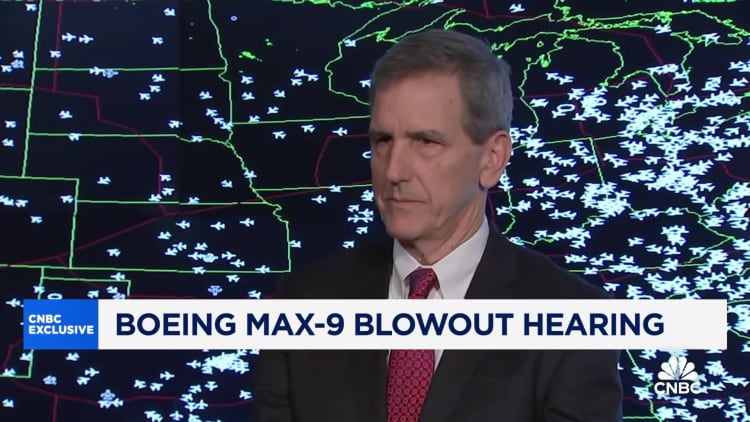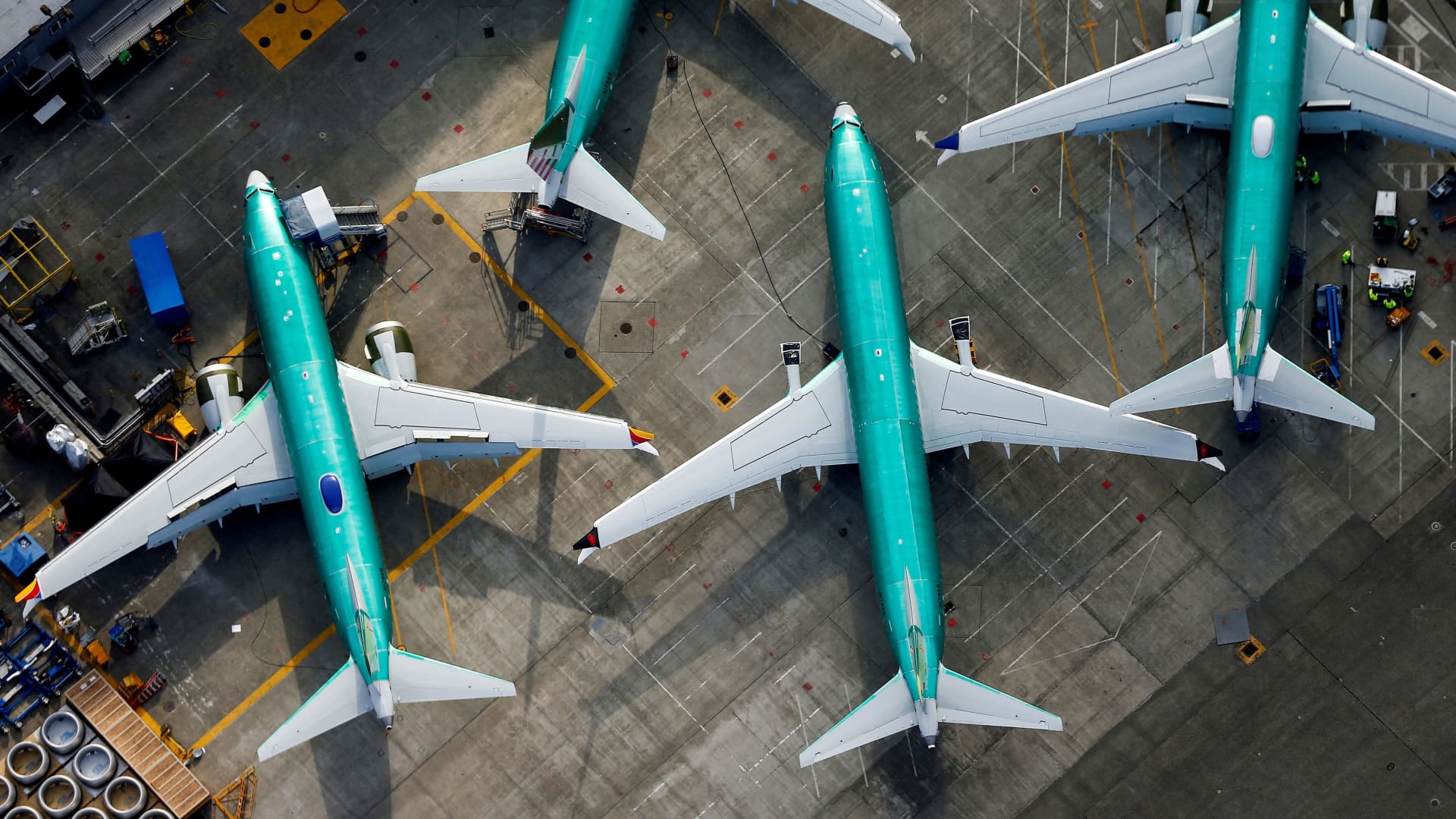An aerial photo shows Boeing 737 MAX airplanes parked on the tarmac at the Boeing Factory in Renton, Washington, U.S. March 21, 2019.
Lindsey Wasson | Reuters
SINGAPORE — Boeing will not be bringing any commercial planes to the Singapore Airshow, shifting the spotlight for passenger jets to rival Airbus as well as China’s homegrown offering.
It comes as Boeing reported a decline in aircraft orders and deliveries in January in the aftermath of a midflight blowout of a fuselage panel on one of its 737 Max 9s at the start of the year.
While there will be aerial displays of commercial liners by Airbus and China’s domestic jetliner Comac C919, Boeing will not have any commercial aircraft at the air show.
To be clear, Boeing will still be showcasing its defense capabilities, and will be featuring many of its fighter jets, including the B-52 Stratofortress which will participate in the U.S. Air Force aerial display.
While no commercial jets will be featured, Boeing will still be holding a cabin display of its wide-body 777X passenger plane, which the company claims is the world’s largest twin-engine jet. Deliveries for the aircraft, expected from 2025, have been plagued with delays.
The Singapore Airshow — held from Feb. 20 to 25 — is typically attended by tens of thousands, including military delegations and aviation enthusiasts.
Other aerospace and defense bellwethers including Lockheed Martin, Dassault, SAAB, Leonardo, Thales are among those participating at this year’s event.
This is the first major international aerospace event since the blowout last month, which pushed Boeing into another safety crisis after the U.S. safety regulators ordered the temporary grounding of more than 170 Boeing 737 Max 9 planes.
A door plug blew out midair on an Alaska Airlines flight shortly take off from Portland, Oregon on Jan. 5, an accident that did not seriously injure passengers onboard but left Boeing executives scuffling to win back the confidence of airline customers, investors and regulators.
China’s homegrown competitor
China is also preparing to showcase and fly the C919 narrow-body commercial aircraft, developed by the Commercial Aircraft Corporation of China, or Comac.
It will be one of the most anticipated aerial features at the biennial event, as it’s the first time China will be flying its homegrown plane for an international audience.
Even as the aircraft is only certified by Chinese authorities, industry experts have said it could be an early competitor to the commercial aviation duopoly between Boeing and Airbus.
“The industry contacts we speak to believe the problems at Boeing, specifically the 737 Max, present an early opportunity for Comac,” Northcoast Research analyst Chris Olin told CNBC.
According to Olin, the C919 may eventually bite into Boeing’s Max market share, but noted “the C919 impact is likely to be muted over the next couple years with aircraft production expected to be limited to 75-100 jets per year.”
Not all bleak for the year
Even as the Max crisis and supply chain disruptions loom large in the industry, analysts expect the impact on Boeing to last only for the short term.
“On orders, 2023 was the best order year on record for Boeing commercial airplanes and was particularly strong into December,” said Myles Walton, managing director at Wolfe Research, highlighting that like Airbus, Boeing is expected to see higher deliveries year over year.

“Given Boeing’s lower starting level in 2023, their delivery growth rate for 2024 is likely to be higher, though the quantum of growth would be more similar,” Walton said.
— CNBC’s Leslie Josephs contributed to this story





















Discussion about this post